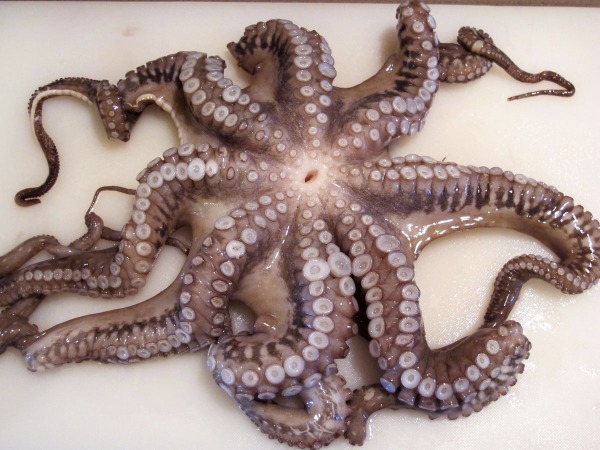So you can break down a chicken, truss a duck and french a rack of lamb? Have you tried cooking an octopus?
There are some dishes which are so failure-prone that a vibrant mythology is built around how to avoid the usual pitfalls. Tenderizing octopus certainly falls into that camp. A quick Google search on the subject quickly reveals that the best way to cook a tender octopus is to vigorously beat it on some Grecian rocks. Or to cook it with wine corks in the pot. Or to add some vinegar. Or maybe the secret is to rub the octopus with grated daikon radish. Actually, scratch all that, the real key to success is to slowly dip the octopus a few seconds at a time into hot water until it acclimates to the boiling temperatures. All of these methods have their proponents, who will wholeheartedly assure you that it will work because after all, that is how their grandfather did it, and his father and his before that.
Since I lack heritage knowledge in octopus cookery, I turned to the next best option: esteemed chef and food scientist Harold McGee. In this article, he admits that his own results with octopus have been inconsistent—sometimes chewy, sometimes fibrous—and proceeds to test all of the usual methods for tenderizing octopus. The result? None of them seemed to be foolproof.
Continue reading Cork, Rocks and Vinegar: How (Not) to Cook an Octopus

